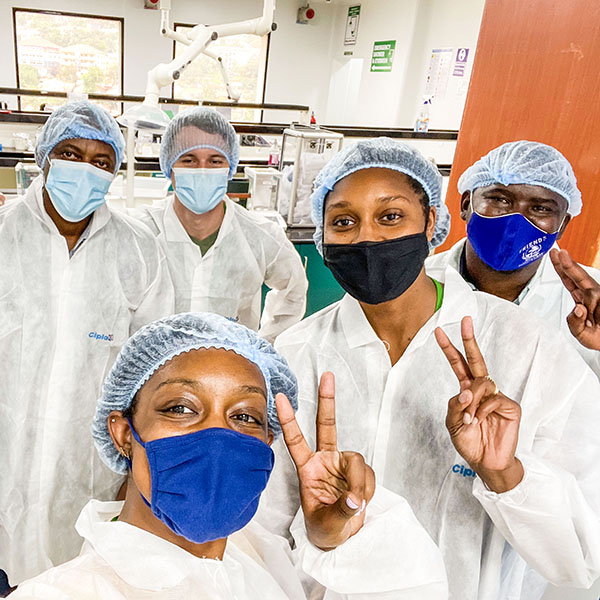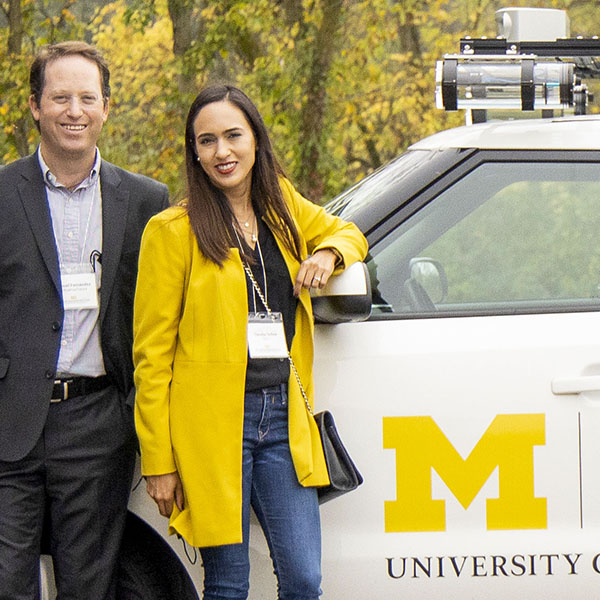Our Mission
To equip economic decision-makers in emerging countries with the tools of commercial success
By the Numbers
Our Impact Since 1992
Solving for Business; One Opportunity at a Time
Photo: Dr. Abena Tannor with a hand rehabilitation device designed by U-M students.
Dr. Abena Tannor, a Ghanaian clinician who recently completed specialist training in physical medicine and rehabilitation, decided to open her own clinic. She has been providing care through government and multinational organizations, but she believes she can more effectively improve the quantity and quality of care through her new business in Kumasi.
When we first met, her main question was whether it could succeed. There are, of course, no guarantees in starting a business, but the need for rehabilitation services in Ghana is only going to grow as the elderly population grows, and Dr. Tannor’s expertise in addressing those needs is rare indeed. More importantly, she has the necessary drive and expertise to make a successful go of it, having already treated many patients and developed or helped to develop multiple products designed for use in low-resource settings. What she doesn’t have is experience in running a business.
Thirty years ago, Bill Davidson established the William Davidson Institute (WDI) to equip people like Dr. Tannor with the tools needed to run a business successfully in low- and middle-income countries (LMICs). We do that by educating people in business concepts that can be applied in their particular business environments. We do that by directly applying business tools and adapting them appropriately to the needs of the client. We do that by developing and testing new models and approaches that allow our partners to succeed. And, we do that by convening leading experts, specialists and scholars to share knowledge and experience in pursuit of business solutions.
As we celebrate our 30th anniversary, we reflect on Bill Davidson’s words at our founding: “We face today a world in disorder, and before us rises the challenge of building a new world order more quickly than at any time in mankind’s history—and with infinitely more at stake.” The recent war in Ukraine crystallizes the urgency of meeting that challenge. In the pages that follow, we highlight a few examples that provide insights on our approach to meeting that challenge. Collectively, they touch on each of the ways we pursue the mission Bill Davidson laid out for us. The common thread is solving problems for businesses in LMICs. Indeed, everything we do as an Institute is designed to address the challenges these businesses and businesspeople face.
Dr. Tannor opened her clinic in January of 2022. In doing so, she was forgoing the more traditional career paths available to physicians in Ghana. It was a risk, but one that would allow her to create opportunities for herself and others that otherwise would not exist. If she succeeds in making her business profitable, she will be able to provide rehabilitation products and services to patients, as well as employment for physical therapists, occupational therapists, support staff and other doctors in the field. The profits, that is, her return on the equity she invests in the clinic, will allow her to increase her investment, resulting in more services and more employment. It will also serve as a model others can follow, and the profitability will provide others with the wherewithal and incentive to do so.
Dr. Tannor, and thousands of others like her, are driving economic growth and improving the lives of untold numbers of citizens through the creation and growth of businesses in LMICs. The opportunities created by that growth, in turn, give the individuals served and employed by these businesses what might justly be called social freedom—the satisfaction that comes from knowing there can be a better world, and that they are helping to build it.

Paul Clyde, President
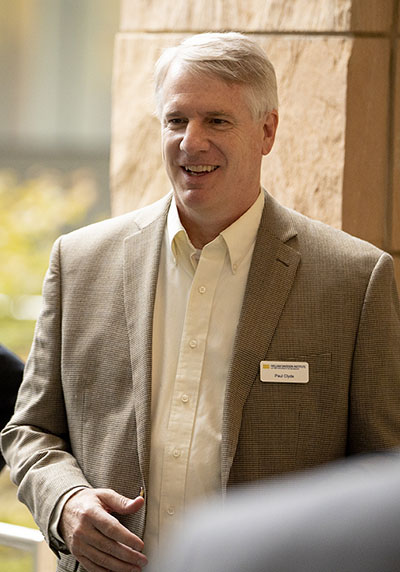
Paul Clyde
Pandemic Invention: Expanding Learning in Africa’s Health Labs
The Challenge:
In the early 2000s, The U.S. President’s Emergency Plan for AIDS Relief (PEPFAR) recognized the “fragile and fragmented” labs across Africa were undermining the development and use of effective treatments. Seven years later, U.S. Centers for Disease Control, PEPFAR, and various Ministries of Health created Labs for Life, a public-private partnership. Becton, Dickinson and Company (BD) has been training clinical laboratory staff in low- and middle-income countries as part of this initiative for about 14 years—and for three of those years, WDI has served as the monitoring and evaluation arm of this important work. BD’s training and mentoring focused on sharing practical tools and best practices with lab managers so that they could more effectively guide their staff. WDI’s role was to gather data and demonstrate the program’s impact. But when COVID-19 hit, the game changed and WDI’s role expanded to include training design and delivery. With all on-site training and travel halted, BD trainers could no longer reach the laboratory staff they were meant to guide, said Nuphar Rozen-Adler, Director of Global Health at BD. The company knew a virtual solution would be required to continue supporting the labs participating in the partnership.
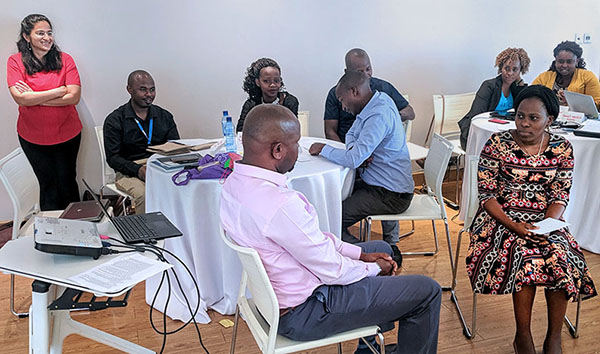
Photo: A data collection and management training workshop organized by WDI in Kenya (2019) for the Labs for Life Africa Project. The man in the pink shirt is participating in a role-playing activity with the quality manager of a clinical laboratory.
Our Approach:
WDI’s Healthcare and Education teams, in partnership with the Association of Public Health Laboratories and BD, went to work designing a course that would successfully train laboratory leaders on effective management and communication skills. They leveraged WDI’s proprietary ExtendEd portal, which was built with the expectation that users would be on a desktop or laptop computer. But the team discovered that many managers in the eight participating African laboratories were using their mobile phones to access the materials. As a result, the WDI team redesigned the ExtendEd portal to be mobile-first, creating a more user-friendly environment for learners relying on those devices. The course, called Laboratory Leadership and Management Essentials, contained eight modules and was delivered over eight weeks to 20 participants across Kenya, Uganda and Rwanda. The new model was built to provide core business skills these managers needed to succeed. Not only did this new program model allow the partnership to reach its essential participants, but it also provided an opportunity for WDI to compile data showing the positive effect of these training sessions. The goal of the course was to transform the management capabilities of these laboratory leaders—and it delivered. “This online platform allowed us to assure continued engagement and training to labs that we have been supporting for years,” said Rozen-Adler.
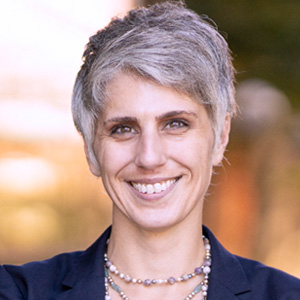
“Laboratories play a critical yet often undervalued role in health systems. As a scientist by training, I am always interested in opportunities that leverage WDI’s ability to improve the leadership quality and efficiency of laboratory operations.”
Pascale Leroueil, Vice President of Healthcare
Lessons in Collaboration: Crossing Borders to Build Strong Leaders, Teams
The Challenge:
Effective business training can’t be solely theoretical. For it to make an impact, the lessons need to encompass the practical matters and decisions facing tomorrow’s leaders throughout their careers—such as engaging team members, harnessing diversity and navigating conflict.
Students around the world lament this chasm between what they are taught in school and what running a business demands of them after they graduate.
“Our educational system is so theoretical, so you come out of school and have difficulty applying [these lessons],” said Timothy Azumah Azirigo, a pilot program participant from Ghana, highlighting the distinctions of a WDI-created online course.
Our Approach:
WDI’s Education Team had students like Azirigo in mind when creating the course “Team Building for Results.” The seven-week online pilot program engaged 91 college-aged social entrepreneurs from six countries (Brazil, Ghana, Kenya, Nigeria, South Africa and the United States) participating in the Ford Motor Company Fund’s global College Community Challenge (Ford C3) initiative.
The program aimed to build upon the participants’ practical leadership and teambuilding skills to help make their enterprise more effective and impactful. Students came together with experienced professors and mentors to discuss topics critical to team success, including diversity, innovation, decision-making and communication. They then tested and applied their knowledge through quizzes, conversations and group projects. They left the course with an elevated framework through which they can view and manage their own business relationships.
At the conclusion of the program, student groups created videos about the impacts of diversity on a team. They shared the varying attributes of their own team members and how these backgrounds shaped their collaborative efforts. They also explored how cultural differences can be harnessed for deeper success, a theme that both resonated in their videos and was felt through the experience of creation.
For Amira Nour Soudky Dawoud, a graduate of another WDI virtual learning program and mentor for this program, the course showed the value of cross-cultural relationships that elevate empathy and kindness.
“It’s the only thing that identifies our humanity,” she said, “not our names or cultures.” Dawoud, who hails from Egypt, explained that kindness makes for successful leaders and peaceful teams, which creates the right environment for members to shine.
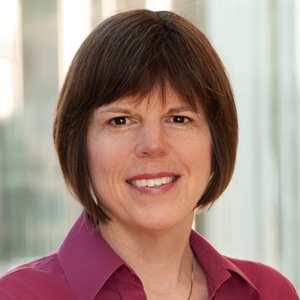
“Teamwork is a critical skill in today’s globalized business world. Embracing diversity, setting the right goals, improving listening and communication skills, and learning how to lead a global team have become the superpowers of successful business leaders.”
Amy Gillett, Vice President of Education
Education By the Numbers
Our Impact Since 1992
Why Local Case Studies Matter: Helping Students Connect to Critical Business Lessons
Photo: Students attending the African Institute of Management (IAM) in Senegal (Image courtesy of IAM)
The Challenge:
Case studies push business school students to make realistic considerations, start layered conversations and develop functional problem-solving skills. By placing students inside real-life situations, academic case studies are a key tool in developing modern business leaders. For students learning in high-income countries within prominent business schools, most case studies mirror the world they see, including familiar corporations and dilemmas they’d expect to experience on the job. But for students in low- and middle-income countries (LMICs), that’s rarely the case.
“Students are more likely to understand the case and be at ease learning it if the case studies are set locally,” said Alassane Fall, engineer and current director of the supply chain management master’s program at African Institute of Management (IAM) in Senegal.
When leaders at WDI and IAM Senegal set out to build a supply chain program for local students, they knew they needed to include case studies about that local region in their curriculum.
Our Approach:
With more than 600 cases, mini-cases, exercises and conceptual notes in its collection, WDI Publishing is home to numerous case studies involving managers and companies in LMICs. This diversity is a key reason why its collection has been utilized in more than 800 universities around the world since the group was established within WDI in 2007.
Working with IAM, WDI Publishing crafted two case studies tailored to Senegalese students. The first focuses on managing supply, demand and delivery at Elton Oil, a petroleum products company operating in Senegal. The second case explores supply chain changes in Africa through COVID-19. (A third case in development will cover inventory optimization for a Senegalese steel company.)
Since the partnership between IAM and WDI began, student interest in the program has grown significantly. For the 2020/2021 academic year, 30 students took part, making it one of IAM’s more popular offerings.
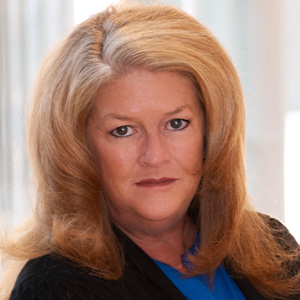
“WDI has the capability and the platform to deliver cases like these, because we have the systems, horsepower and processes to professionally edit, format, publish and distribute them.”
Sandra Draheim, Manager of WDI Publishing
Case Publishing By the Numbers
Our Impact Since 1992

Students Embrace Opportunities in LMICs
Photo: U-M Business students explore a laboratory as part of a WDI-sponsored project in Uganda with partner Busoga Health Forum (BHF) in 2022. BHF’s goal is improving health in the Busoga region by developing new services and products. The U-M team provided a market assessment and recommendations for developing a diabetes product.
From sponsored courses to specialized projects to coordinated internships, WDI continued to support more than 60 University of Michigan students across multiple disciplines and geographies over the last 12 months. While all 2021 student projects were coordinated virtually, through their individual and collective efforts, U-M students advanced the work of WDI partner organizations in Ethiopia, Ghana, India, Kenya, South Africa and Ukraine.
Some twenty-two graduate students pursuing their MBA at Michigan’s Ross Business School participated in WDI-supported Multidisciplinary Action Projects (MAP) in 2021.
One of those key projects is the Michigan Academy for the Development of Entrepreneurs (MADE, cofounded by WDI), an initiative providing training and consulting to small- and medium-sized enterprises (SMEs) in India, Kenya, Senegal and, prior to the Russian invasion, Ukraine. In India, MADE partner Poornatha has provided training to over 1,000 SMEs through contracts with Indian Bank and directly with SMEs. MADE has supported the development of that training and is currently helping to develop a market expansion strategy for online business-to-business training programs within India.
“Working with the William Davidson Institute is a unique opportunity to put theory into practice in complex environments,” said Douglas Ely, who is pursuing an MBA and master’s degrees in Environment Sustainability. “I really value learning new ways of what’s possible, and I learned a lot about the practice of building a business.”
Ely’s work supporting the U-M student-run International Fund and on an off-grid bioenergy project earned him the distinction of being named a Davidson Field Scholar, a program for students who complete two WDI-supported courses or programs in coordination with their graduate programs.
“Our students make important contributions to the partners that we work with in LMICs. It’s a testimony to the quality of the students’ work that these partners keep coming back,” said WDI President Paul Clyde.
Emily Edkins, who graduated in 2021 with a Michigan Ross MBA, said she made the most of her time as a Davidson Field Scholar, during which she decided to alter her career focus from power and utilities to the healthcare industry. She worked with emergency service provider GVK EMRI to assess the emergency response operations of companies in Uttar Pradesh, India, and with TIP Global Health to assist in the organization’s efforts to expand a digital health program across Rwanda.
“It’s a great opportunity to expand your mindset and build relationships with global partners,” Edkins said.
In the spring of 2022, WDI once again supported student travel for MAP projects taking place in Ghana, India and Uganda, while planned travel to Ukraine was canceled.
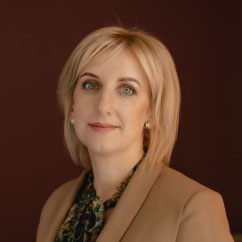

WDI's Partner in Ukraine
Through student programs, projects and university partnerships, WDI has worked in Ukraine for more than two decades. Read an interview with Sophia Opatska, Vice Rector at Ukraine Catholic University’s Lviv Business School, a WDI partner, conducted in March 2022.
Leaders By the Numbers
Our Impact Since 1992
Clinic to Hospital: Improving Healthcare Investment & Delivery
Photo: An employee with OSME medical clinic speaks with a patient at the facility, located in San Luis Río Colorado in Sonora, Mexico, a border town just south of Yuma, Arizona. (Image courtesy of OSME.)
The Challenge:
If the label on your box of blueberries says “grown in the U.S.,” it’s likely a migrant farmworker had a hand in its journey from the soil to your plate. These essential workers keep U.S. farm systems functioning, and they require essential services—including healthcare. Dr. Raul Payán has been answering that need for 30 years.
He runs the OSME medical clinic in San Luis Río Colorado in Sonora, Mexico, a border town just south of Yuma, Arizona. He and his team provide general and urgent care, imaging and routine medical services to the community, which is mostly made up of migrant workers and their families whose healthcare costs are covered by U.S. insurers and businesses. But Dr. Payán’s clinic is not a hospital, so he and his team refer patients with more serious medical needs to hospitals, often in the city of Mexicali, an hour away, where prices for care are higher. This means the clinic is losing patients it could otherwise treat, insurance companies are spending more than if OSME operated a hospital in San Luis Río Colorado and patients are inconvenienced by being forced to travel to receive treatment and pay higher copayments.
Our Approach:
To provide specialist inpatient care, Dr. Payán is planning to grow the OSME clinic into a full-scale hospital, with the goal of retaining patients within the system, lowering their cost of care and attracting new ones from the surrounding region. In response to the effects of the COVID-19 pandemic, the North American Development Bank (NADB), a border-focused developmental financing institution run jointly by U.S. and Mexican leadership, is looking to support projects that have both environmental benefits and direct positive impacts on the border economy and the well-being of its residents. Recognizing the success of OSME’s service model, NADB is considering a loan to the medical group for a portion of the funds it needs to expand. But before deciding to support OSME’s growth, the finance institution turned to the William Davidson Institute to tackle some of its due diligence, while providing deep industry and business analysis into the possible benefits of such support. Ioan Cleaton-Jones, Director of Healthcare Delivery at WDI, has been working closely with both Dr. Payán’s OSME team and the NADB to ensure adequate due diligence while also examining the likelihood of business success for both parties. Not only does the OSME clinic already run at a profit, but its plans to expand are clear and full of potential.
“This makes sense as a business,” Cleaton-Jones said.
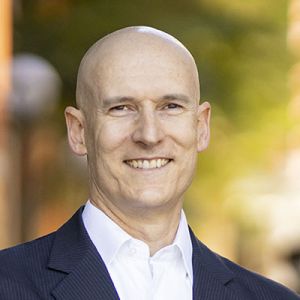
“The clinic has built its business plan around capturing more of the value chain of care for their existing insured patient market while also enabling their U.S. health insurance partners to expand their market, bringing more workers and their families into the insurance net.”
Ioan Cleaton-Jones, Director of Healthcare Delivery
Propelling Clean Energy with Better Data
The Challenge:
Wind turbines turn the breeze into renewable energy—but they need to run consistently to effectively capitalize on this natural power. Unfortunately, these complicated machines require meticulous maintenance to ensure optimal power generation, contributing to a significant portion of the annual operating expenses for wind-energy companies.
Based in Gurugram, India, a company called a Industry.AI has come up with a solution: an innovative set of software and hardware tools that are installed directly into the turbines and take note of subtle changes in their functioning and output. This technology allows Industry.AI to closely monitor the data and inform organizations of any meaningful shifts, allowing them to quickly identify preventative maintenance needs and avoid more complex fixes.
By diagnosing these potential problems early, companies can fend off pricey repairs that require extensive downtime for the turbines and consume profits. The methods have worked for wind-energy companies across India—and Industry.AI is seeking to broaden its business to other countries around the globe.
Our Approach:
With expertise in pinpointing business opportunities in low- and middle-income countries (LMICs), along with an expansive network of business leaders in these locations, WDI partnered with Industry.AI in its quest to bolster its global operations. Sachin Nijhawan, a WDI Research Fellow, explains the power behind the partnership: “It really aligns well—the WDI mission and the Industry.AI strategy of growing in LMICs where they don’t have a presence.”
The first step was determining which market held the greatest promise. University of Michigan business students worked with the company through a WDI-guided Multidisciplinary Action Project (MAP) to develop a comprehensive list of possible next-step countries. The team identified Brazil as the best option, and WDI has continued its work with Industry.AI to push this exploration forward.
A U-M business student, who worked in the Brazilian energy industry before beginning his studies, joined the group to connect Industry.AI with potential partners, facilitating critical conversations with key wind-energy leaders. The WDI team identified potential customers and is determining which would be best suited as clients—though there are no plans to stop at this first market. In fact, the team identified South Africa as the next LMIC to examine for the firm.
“If we’re successful, we’ll do this again and again,” Nijhawan added.
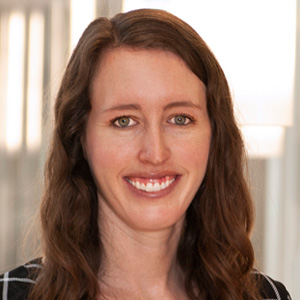
“Industry.AI has been very successful in India, and WDI is excited to help the company enter new markets and create new opportunities in clean energy.”
Dana Gorodetsky, Senior Project Manager of Energy & Grants
What Businesses & Nonprofits Can Learn from One Another
For-profit and not-for-profit firms both use tools that allow them to continuously improve their operations. While the names used to describe the tools differ, the concepts and approaches include many of the same components. To better understand differences, Heather Esper, Director of WDI’s Performance Measurement & Improvement team, and Eric Svaan, Business Lecturer of Technology and Operations at the University of Michigan’s Ross School of Business, looked into how for-profit and nonprofit practices can be adapted and augmented to another. Their white paper, “Improving Organization Performance Through Cross-Sector Learning: Lessons from Measurement,” details lessons related to organizing, structuring and processing data. They range from suggesting businesses use tools like stakeholder mapping to ensure they are not missing key perspectives to using learning agendas that prioritize and organize data collection based on the company’s broader strategy and needs. Recommendations for businesses also included providing guidance on how to systematically analyze qualitative data to avoid bias in analyses and investigating how social metrics influence financial metrics in positive ways. The paper also recommends public and non-profit sectors build staff capacity to lead learning and improvement within organizations rather than outsourcing those efforts. Doing so, Esper and Svaan write, will encourage more internal sharing of actionable data to improve performance.
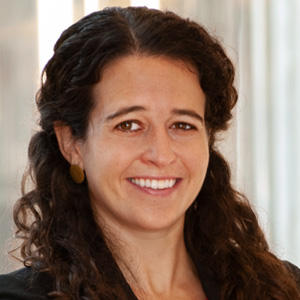
“WDI has a deep understanding of the challenges and best practices of both the business and nonprofit sectors. As a result, WDI is well positioned to translate valuable practices from one sector to the other.”
Heather Esper, Director of Performance Measurement & Improvement
Estimating the Impact of New Vaccine Technologies
Vaccines are one of the most cost-effective tools for improving human health and well-being. The impact of a vaccine on the health of a population is partly determined by its coverage rate, or the proportion of eligible people vaccinated. Yet vaccine coverage rates remain stubbornly below targets in many nations, particularly low- and middle-income countries (LMICs).
In a new article published by the online journal PLOS ONE, Pascale Leroueil, WDI Vice President of Healthcare, and co-authors present a method for estimating the impact of improved vaccine technologies on coverage rates in LMIC vaccination programs. The general principle behind the method is that there are barriers to vaccination that can be reduced or eliminated by making changes to the vaccine presentation—for example, the number of doses required for protection or the temperature storage requirements. The magnitude of the barriers to vaccination are a function of the population where the vaccine is being deployed. Therefore, some changes to the vaccine presentation could have a significant impact on vaccination coverage in one country while having very little effect in another country. Understanding this relationship at both the country and global level is beneficial to the buyers of vaccines, including global donors, as well as the developers and manufacturers of vaccines.
“The COVID pandemic has highlighted the presence of supply- and demand-side barriers to vaccination in both high-income countries and LMICs. As COVID vaccines are developed and deployed, we see examples of how vaccine characteristics can affect coverage rates. We hope that this approach for quantifying the expected change in vaccine coverage will be used to support vaccine investment-related decisions,” Leroueil said.
Preparing for an Electric Future
Photo: In October, 2021, WDI in coordination with the Economic Development of Juárez and the US-Mexico Foundation (USMF), convened a week-long visit for 15 senior leaders in business, technology, academia and government from the State of Chihuahua, Mexico—a critical hub in the North American automotive industry
The Challenge:
As the largest city in the State of Chihuahua, Juárez is home to over 330,000 manufacturing workers. The more than 100 auto-related companies operating here supply about half of these jobs. The transformation of the global automotive industry toward electric vehicles and the supply chains and workforces to build them, will have a significant impact on towns like Juárez, not to mention other automotive hubs, such as Detroit.
Fernando Alba, Undersecretary for Innovation and Economic Development for the State of Chihuahua, said the industry’s rapid shift away from the internal combustion engine toward electrically powered vehicles will mean cleaner transportation and fewer parts, but also far fewer components produced there. In response, he’s among many regional economic development leaders working to advance multiple initiatives on mobility, innovation, digitalization, smart city technologies and workforce development and upskilling.
“The challenge we have is how do we adapt our people, our talent and our companies,” Alba said. “As a city with a heavy manufacturing tradition that is moving away from what we used to do, we need to learn the new tools and techniques to continue to be a leader in the new world of mobility.”
Our Approach:
With this massive shift in mind, WDI, in collaboration with Economic Development of Juárez and the U.S.-Mexico Foundation, designed and convened a week-long mobility exchange in October 2021 for 15 senior leaders in business, technology, academia and government from the State of Chihuahua, Mexico—a critical hub in the North American automotive industry.
The delegation connected with faculty and other experts representing the University of Michigan’s Ross School of Business, Transportation Research Institute, College of Engineering, Technology Transfer and MCity to learn about the mobility expertise across campus and discuss key mobility trends. The group also visited Detroit, where they learned about the city and state’s mobility plans and discussed economic development implications with representatives from TechTown, NextEnergy, the Office of Future Mobility and Electrification, Detroit Economic Growth Corporation and Automation Alley.
“How we all think about mobility is changing faster than any one company can possibly manage. Keeping pace with that change will require novel approaches and new conversations, not just in Southeast Michigan or Chihuahua, Mexico, but around the world,” said Diana Páez, Senior Director at WDI. “We were delighted to convene this exchange and plant the seed for future collaborations between Chihuahua and Michigan.”
Alba noted that Juárez and the Detroit area share several similarities; both border other countries, the U.S. and Canada, respectively. Their local economies rely largely on the automotive industry, and they both have faced serious social and economic challenges that have hindered growth.
“The William Davidson Institute is a key player for us in what we want to do in the future for our region,” Alba said. “Being based here at the University of Michigan and close to Detroit, there is no better place to be.”
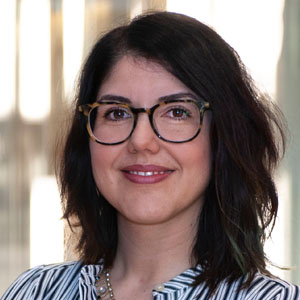
“At WDI, bringing together the players who truly drive economic growth and opportunity is what we do. The future of mobility is global, and that’s where we can help our partners have the most impact. For us, it’s where the rubber hits the road.”
Diana Páez, Senior Director, Energy & Mobility
Revealing Innovative Approaches to Energy Challenges
The Challenge:
NextBillion, WDI’s affiliated media site, showcases the trends, companies and thought leaders that are defining the LMIC business sector, and perhaps no topic has sparked more discussion on the platform in the past year than energy access. It was the focus of three of NextBillion’s most-read articles of 2021, including a piece that was selected by readers as one of the site’s most influential articles of the year.
Many of these articles, written by entrepreneurs, investors and other industry stakeholders, have explored the multifaceted challenges facing energy businesses in LMICs. Some of these companies manage solar mini-grids to power the growing electricity needs of rural households and enterprises. Others sell solar home systems or solar-powered appliances. But regardless of their products, these businesses face some common difficulties: For instance, mini-grids naturally produce electricity during the day—but their customers generally need it at night—requiring them to employ costly batteries and diesel generators. Solar appliances can deliver benefits to both households and small businesses, while generating the electricity demand that mini-grid providers need to reach sustainability—but uptake has been limited. And enterprises across the sector are dealing with the ongoing challenge of lack of investment capital, along with the continued fallout from COVID-19.
Our Approach:
NextBillion’s guest writers explored several innovative solutions to these challenges. For example, by cultivating linkages with their counterparts in other sectors—particularly agriculture—mini-grid companies can acquire customers whose stable, daytime demand for electricity can anchor their business models. Partnerships can also open pathways to scale for solar appliance providers, while innovative investment approaches like results-based financing can draw needed capital into the sector. Open-source models for knowledge-sharing can enable companies to innovate without having to reinvent the wheel, while investors work to help these companies survive the pandemic and pursue scale in the longer term. As NextBillion Editor James Militzer put it, “Energy access has emerged as a core focus of our coverage. We’re excited to provide a forum for the discussion of the innovative solutions the sector will need to achieve its full potential in LMICs.”

The Business Dialogues that Crossed Sectors, Borders
Photo: Stryker Chairman and CEO Kevin Lobo (left) with John Daniel, Vice President of Research and Development, Neurovascular, discuss a product at an R&D event. (Image courtesy of Stryker Corp.)
How businesses should work with nonprofit donor organizations to improve global health. The twists and turns of the U.S./Mexico trade relationship as the auto industry moves toward an electric future. The tough calculus leading a Fortune 500 medical device company CEO to exit an emerging market.
These were just a few of the in-depth discussions hosted by WDI in the last year. While all events remained virtual, WDI drew strong audience attendance and participation for both speakers and panelists tackling dynamic challenges. Hosting foremost experts in business, government, and nonprofits, WDI’s panel and speaker events dug deep into global problems, and shared practical opportunities for businesses striving to achieve in low- and middle-income countries (LMICs).
Stryker CEO Kevin Lobo on “Challenges and Opportunities for Healthcare Companies in Emerging Markets”
The keynote speaker for WDI’s Ralph J. Gerson Distinguished Lecture, Kevin Lobo, Chair and CEO of Stryker, provided perspective and insights for innovating and driving growth in LMICs. With globalization as part of the company’s strategy, Lobo has continued to focus resources and talent on key global markets since becoming CEO of Stryker in 2012. In the discussion with WDI President Paul Clyde, Lobo spoke about how Stryker evaluates different countries, a time-consuming, but ultimately fruitful, process.
Headquartered in Kalamazoo, MI, Stryker is one of the world’s leading medical technology companies, offering innovative products and services in orthopedics, medical and surgical, and neurotechnology and spine that help improve patient and hospital outcomes.
“A Vision For A Stronger U.S.-Mexico Partnership: Emerging Opportunities In The Automotive Industry”
For decades, the U.S.-Mexico automotive supply chain has been deeply unified, collectively manufacturing around 20 percent of the world’s passenger cars and commercial vehicles. However, the automotive sector is undergoing a profound transformation, fueled by technological innovations, sustainability efforts and supply chain disruption. In November, WDI and the Ross School of Business at the University of Michigan, in collaboration with the U.S.-Mexico Foundation, hosted a virtual roundtable to discuss further integration within the auto industry in the U.S. and Mexico. During the virtual roundtable, two interrelated, consecutive panel discussions focused on these shifts and how both sides of the border can leverage them in the context of an enhanced U.S.–Mexico partnership. The discussion included two former ambassadors, as well as executives from Ford Motor Co., Lear Corp. and Eaton Corp.
“From R&D to the Patient: Changing the Role of Business in Global Health”
Moving health products from the research and development stage to the clinic is a long and costly process that involves many actors, particularly in LMICs. In these markets, global organizations such as the Bill & Melinda Gates Foundation, the Global Fund to Fight AIDS, TB and Malaria, and Gavi play a significant role in moving health products through the process. These organizations influence market behavior at the R&D, manufacturing, procurement and delivery stages with the hopes of increasing access to life-saving health products to patients in LMICs. Their efforts have been effective, but are there opportunities to better engage some of the other actors in this space, particularly those from the private sector? The discussion explored these ideas and more with the distinguished panelists representing the Gates Foundation, The Global Fund and Inventprise.
Top Diplomat from Vietnam on Building Trust and Taking Risks
In alignment with WDI’s Education sector’s emphasis on cross-cultural business training, Ted Osius, former U.S. Ambassador to Vietnam and leader of the US-ASEAN Business Council, discussed Vietnam’s economic transformation and the skills necessary to succeed in cross-cultural business. A diplomat for 30 years, Osius served from 2014 to 2017 as U.S. ambassador to Vietnam during the Obama Administration. After serving as the second openly gay career diplomat in U.S. history to achieve the rank of ambassador, Osius joined Google as its Vice President for Government Affairs and Public Policy at Google Asia-Pacific. He shared some of the key insights from his 2021 book “Nothing is Impossible: America’s Reconciliation with Vietnam.”
New Approaches to Qualitative Data Gathering from a Leading Innovator
WDI’s Performance, Measurement and Improvement team welcomed acclaimed author and entrepreneur Daryl Collins, who explored how technology can help researchers, nonprofits and businesses engage and serve these communities around the world. Collins, who has built a broad portfolio of work with financial service providers, foundations, bilateral donors and governments, shared examples of how her company, Decodis, is using technology to collect and analyze qualitative data in a more scalable and lower-cost manner. She discussed examples of collecting data using WhatsApp audio responses to understand changes in gender norms and assessing Google Play reviews of digital lending apps in India. Collins’ work is grounded in a deep understanding of the financial lives of individuals. She is the author of the ground-breaking “Portfolios of the Poor” and creator of the Financial Diaries, a research tool used in over 10 countries, including South Africa, Kenya, Mozambique and Tanzania. WDI co-hosted the event with U-M’s Poverty Solutions initiative.
Project Portfolio
Our Impact in 2021–22
Solving for Business
Because Business Drives Economic Growth
& Social Freedom
